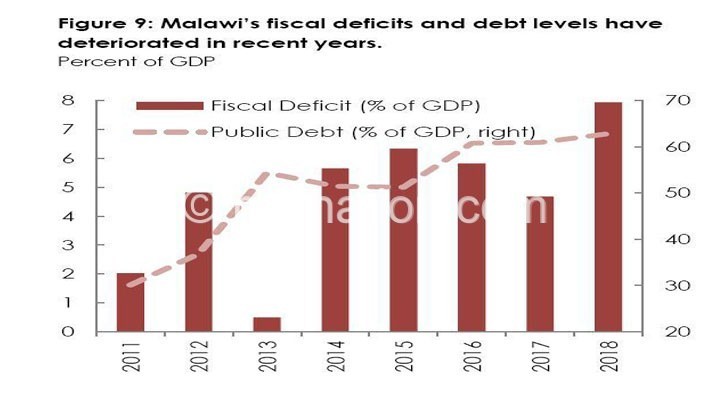Treasury positive on budget despite risks
Minister of Finance, Economic Planning and Development Joseph Mwanamvekha says emerging donor support gives fiscal confidence despite procurement, fraud and interest on debt being major risks to the 2018/19 National Budget implementation.
In an interview on Friday, the minister said government is losing a lot of revenue due to procurement lapse in some ministries, departments and agencies (MDAs), including councils.
“The major risk that I am seeing is procurement. This is where we are losing a lot of revenue.

“There are some MDAs that are committing on behalf of government without Treasury knowing. They are creating contingent liabilities on the part of government,” he said.
While observing that managing exchange rate and inflation is key to reducing interest paid on public debt, Mwanamvekha said interest on debt also remains one of the risks in the 2018/19 budget.
On budget support, he said, so far, Treasury has received $40 million (about K30.4 billion) from the World Bank and $20 million (K15.2 billion) from the Chinese Government, adding that Treasury will also be signing an agreement with the African Development Bank (AfDB).
The Reserve Bank of Malawi (RBM) Financial and Economic Review for December 2018 shows that the stock of public debt stands at K3.3 trillion, which is 65 percent of gross domestic product (GDP).
According to World Bank June 2019 Malawi Economic Report, interest payments on domestic debt have reached 20 percent of government revenue.
During the 2018/19 financial year, World Bank withheld its K60 billion budgetary support due to failure by Cabinet to discuss proposed Agricultural Development and Market Corporation (Admarc) reforms.
Without the K60 billion, grants were projected to decrease from K197.1 billion to K137.1 billion by the end of the financial year ended June 30 2019, representing a 30.4 percent decrease.
The budgetary support could have gone a long way in reducing the domestic debt which is reaching unmanageable levels.
Due to the non-disbursement of the World Bank’s budget support, Treasury was forced to trim allocations to some ministries, departments and agencies (MDAs).
Catholic University head of economics Hopkins Kawaye described the annual increase in public debt as worrisome.
“High levels of domestic debt lead to high inflation, crowds out public investment.
“Government must reduce domestic debt by reducing fiscal deficits to support fiscal and debt sustainability,” he said.
Institute of Chartered Accountants in Malawi (Icam) chief executive officer Francis Chinjoka Gondwe urged government to allocate sufficient resources in the 2019/20 budget to pay off some debts.





